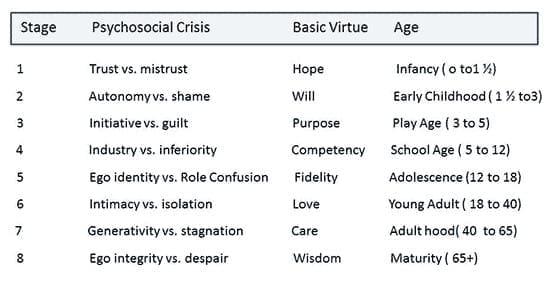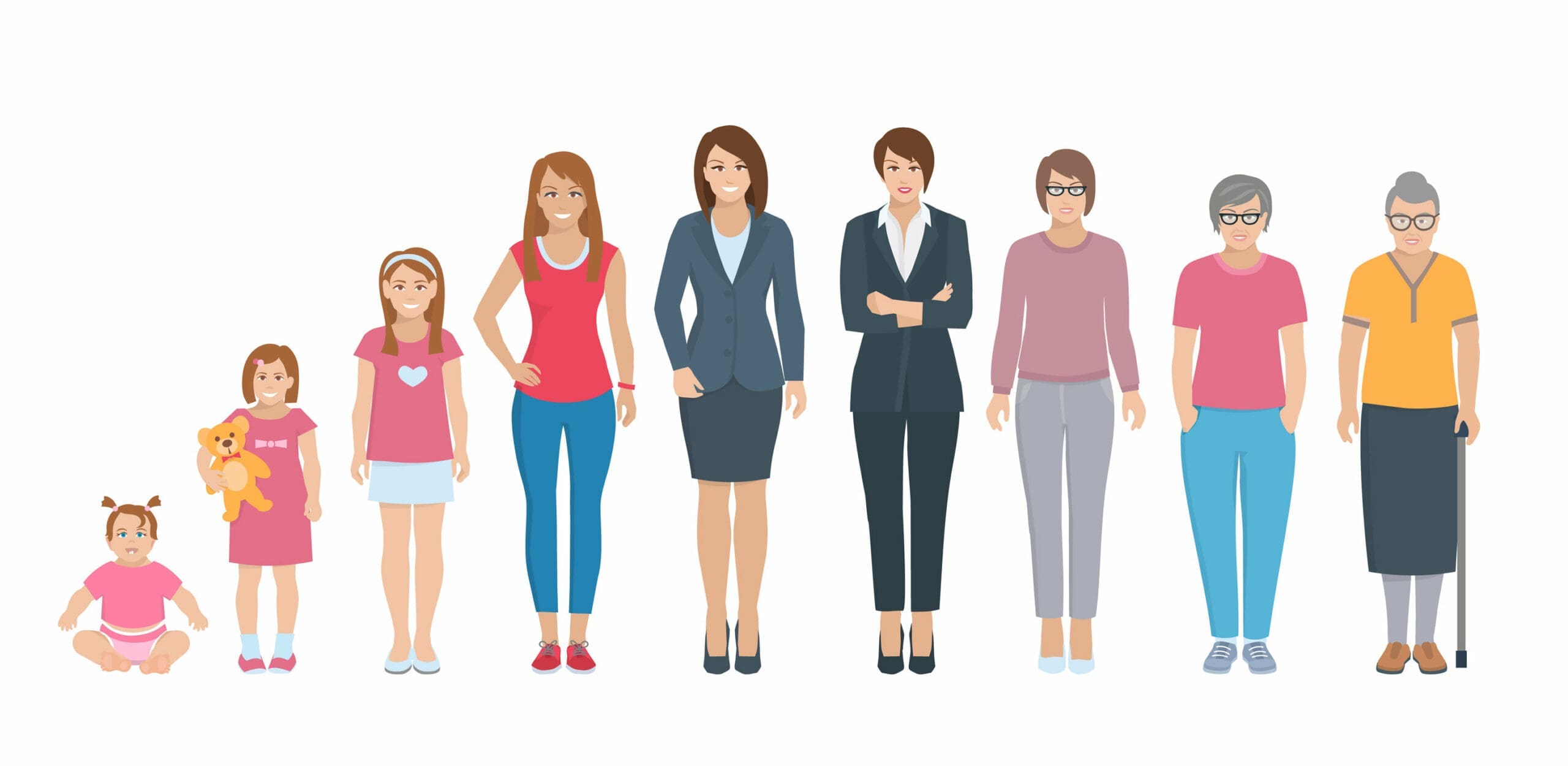Influenced by Freud’s psychodynamic ideas that individuals develop in specific stages, Erikson theorised that people go through eight specific stages and learn to work through these into the next one by resolution of crises, which help to build identity. He also recognised that development was influenced by other people as well as by the individual.
According to the theory, each stage occurs at a particular age and brings with it challenges or opportunities, and if these are not gone through ‘normally’ then this will result in psychological problems. Also, each stage has two completely opposite outcomes and the individual needs to successfully complete the challenges of each stage before they can move on to the next one.
The stages of development are outlined in the table below:

Strengths and weaknesses of the theory
- strength of the theory is that unlike Freud’s limited look at life stages, Erikson’s interpretation of this covered an entire lifespan and so early experiences and later development could be more easily linked
- Another strength is that the theory has a practical application – it shows that older people are still developing and therefore they can benefit from examining their beliefs about their circumstances
- One strong weakness is that the stages are not thought to be universal – many cultures have big differences in when things can occur in a person’s life. For example, in some cultures, children are able to marry by age 13.
Baumeister and the consequences of belief in free will
Free will refers to how much people are able to have control over the choices that they make. It is also linked to self-control and how rationality is applied to choices that are made.
Free will brings about huge debate in both psychology and philosophy due to several different views:
- Genetics and biology mean that a person may not be able to control certain aspects of how they act and therefore they should not be accountable for their actions. Unlike free will, this is a deterministic viewpoint
- Philosopher Jean Paul Sartre believed that people are always accountable for their actions because every decision is based on a choice; therefore, people have free will in deciding how to behave
- Philosopher Immanuel Kant argued that freedom comes about because of morality and sound reasoning but that only some actions could be determined in this way; free will is therefore about self-control and choices which are reasoned
Baumeister argued that free will is vital in psychology because of the impact it has on a person’s moral judgment and free will has several important practical consequences:
- A justice system: if people are held accountable for their own actions then they can be punished for unacceptable behaviour. If no one was accountable for behaviour then punishment would not happen and unacceptable behaviour would be repeated
- Free will may improve pro-social behaviour: people who acknowledge their part in their own behaviour can take control of their actions and are therefore thought to be more likely to help others
- Free will can help someone learn from challenges: if a person has free will, they will be more likely to reflect positively on negative events and so avoid similar negative events in the future.
Strengths and weaknesses of the theory
- strength of the theory is that practical examples of free will make it much easier to understand and people are therefore better able to reflect on their own behaviour. This is far more useful than some philosophical ideas that none of a person’s actions are down to free will
- weakness of the theory is that free will is almost impossible to test scientifically and so the theory can never be proven one way or the other.



